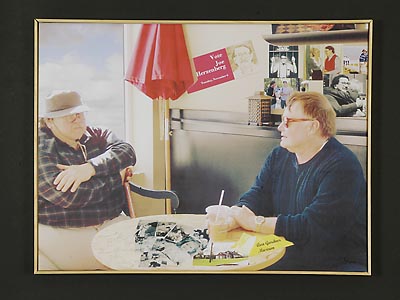Its history has never been quiet.
Beginning with the Civil Rights movement in the 1960s, the Franklin Street post office plaza has remained a site where residents go to make their voices heard loud and clear.
...
To honor the plaza's unique history, the council is looking for a fitting tribute for the site, opting at its Monday meeting to hold a public hearing on the matter in the future.
....
Joe Herzenberg, a member of the continuing concerns committee, which was set up to address race relations after Airport Road was named in honor of Martin Luther King Jr., also suggested to the council Monday that three (local) men be commemorated at the site.
Then-UNC students John Dunne and Pat Cusick and Quinton Baker, a student at the N.C. College for Negroes (now N.C. Central University), participated in a vigil and fast in the plaza on Easter of 1964, Herzenberg said.

March, 1964. L-R: Patrick Cusick, LaVert Taylor, John Dunne, James Foushee. Photo by Jim Wallace.
Like the people who gathered there, the plaza has a history in and of itself.
Now owned by the town, the site was once the property of the federal government.
"Because of that, the Chapel Hill police could not arrest people on federal property," Herzenberg said.









